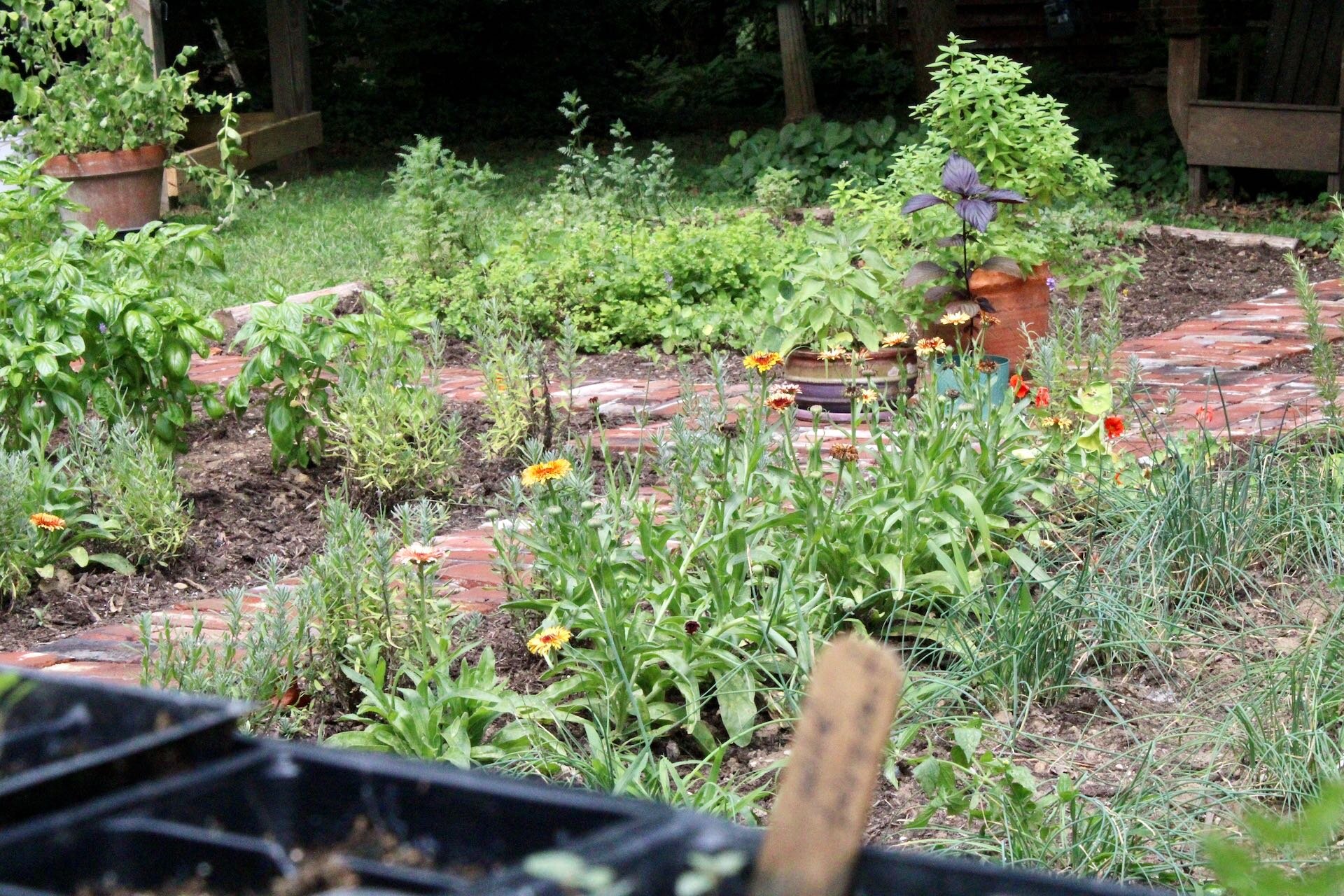Celebrating Community with Chef Ouita
by Ouita Michel
photo by Talitha Schroeder
These past weeks and months, I have been asked countless times what I’ve learned from being in the restaurant business during the onset and duration of a pandemic that we are still navigating. Honestly, the lessons come in every size and are so numerous that I can hardly put them into words. My overwhelming feeling has been one of gratitude — for the beauty that surrounds me each day and for my family members, friends, and the amazing people I have the honor of working with side by side.
In late March 2020 when we were new to this experience and things felt quiet, new gardens were planted at Holly Hill under the direction of David Wagoner. The flower beds were brought to life, the herb garden expanded, and a garden bed planted for teas and other infusions.
photo by Talitha Schroeder
These gardens are a true way of coping with frightening change by reminding us of the simple beauty found quite literally in our front yard. The herb garden is especially meaningful for me; I love how herbs are symbolic, medicinal, beautiful, and flavorful all at the same time. The small blooms of the marigold tarragon, the plumes from the anise hyssop, small lavender stems of purple buds, little white flowers of chamomile — they make moments in the herb garden, and then the kitchen, feel special. For chefs, the connection to beauty and to agriculture is deeply inspiring. It alleviates the stress of a professional kitchen and reconnects us all to the love of what we do.
photo by Talitha Schroeder
The past 20 years we’ve run our small company literally from the kitchen table in our home. It’s always been a source of frustration for me: not being able to separate my home life from my work life. And sometime in the future perhaps we’ll find a way to do that. The past year though, I started thinking about our kitchen-table style as a strength.
photo by Talitha Schroeder
I don’t have an MBA and my approach to management has always been instinctual, so I’ve had to learn a lot of painful lessons along the way. I do see our employees as a family, and I want our mutual working lives to be enriched with learning opportunities, creativity, good health, financial stability, and just plain ole happiness. As comforting as a place can be, it’s our relationships to one another that give us strength and illuminate the unique talents and stories we each possess.
We are all working in — cooking, serving, and growing — the food culture of central Kentucky. It is this story of people, place, and ingredients that we are trying to tell in large and small ways, each bite at a time, each plate at a time; not just in my voice but in many voices. It is my hope in doing so that each person in our company becomes a character in our story and valued for who they are and what they bring to the table. We stand together as a counterpoint to the homogenized, centralized, industrialized food culture that crosses county and state lines with a smothering sameness which conceals the uniqueness of our food ways.
Our food culture is vital to our cultural experience as a community. By food culture, I mean our farmers who grow and cultivate true Kentucky ingredients, our young chefs who are learning to handle a chef knife and how to properly season a dish. I mean the professionals and their young mentees at work in our dining rooms serving our guests. And especially — our farmer’s markets; the parents and kids at home cooking dinner together; potters throwing bowls and plates for Kentucky tables; and even our poet laureate, Crystal Wilkinson, writing lyrically about how cooking has inspired her work.
Ouita talks with Lee Ann Jones of Happy Jacks Farm. photo by Richie Wireman
We each have a food culture of our own and we are connected to one another by how we share that culture. And we are connected more deeply to this place when we use locally grown ingredients. Some of our food ways are historic, passed generation to generation with long Kentucky roots, and some are carried from afar as families immigrate and join the Kentucky table. There is such strength and creativity in this diversity. Restaurants can play a wonderful role when they plowshare for the farmer, welcome all who care to enter, cook from scratch, and treat their employees with love and respect.
These lessons, in appreciation of the place where I am and the people who surround me, have led to the creation of this website, and the attendant desire to have a dedicated space for celebrating our rich food culture — the culture we bring collectively to our restaurants and the culture that thrives outside them, told in our individual stories. For our logo, we chose a very simple herb garden — parsley, sage, rosemary, and thyme. Parsley symbolizes comfort and the cleansing away of bitterness; sage represents wisdom and the knowledge to do what’s right; rosemary is for remembrance, fidelity, and love; and thyme signifies strength and courage. They seemed the perfect bouquet garni for our time and in my head I can still hear the refrain, a gift from an old song book on my mom’s piano.
— Ouita Michel
© 2021, Holly Hill Inn/Ilex Summit, LLC and its affiliates, All Rights Reserved
Related Content
Bourbon Tasting Tips From Ouita
With so many ways to approach bourbon, Ouita talks about her preferred tasting techniques, including the flavor wheel.






